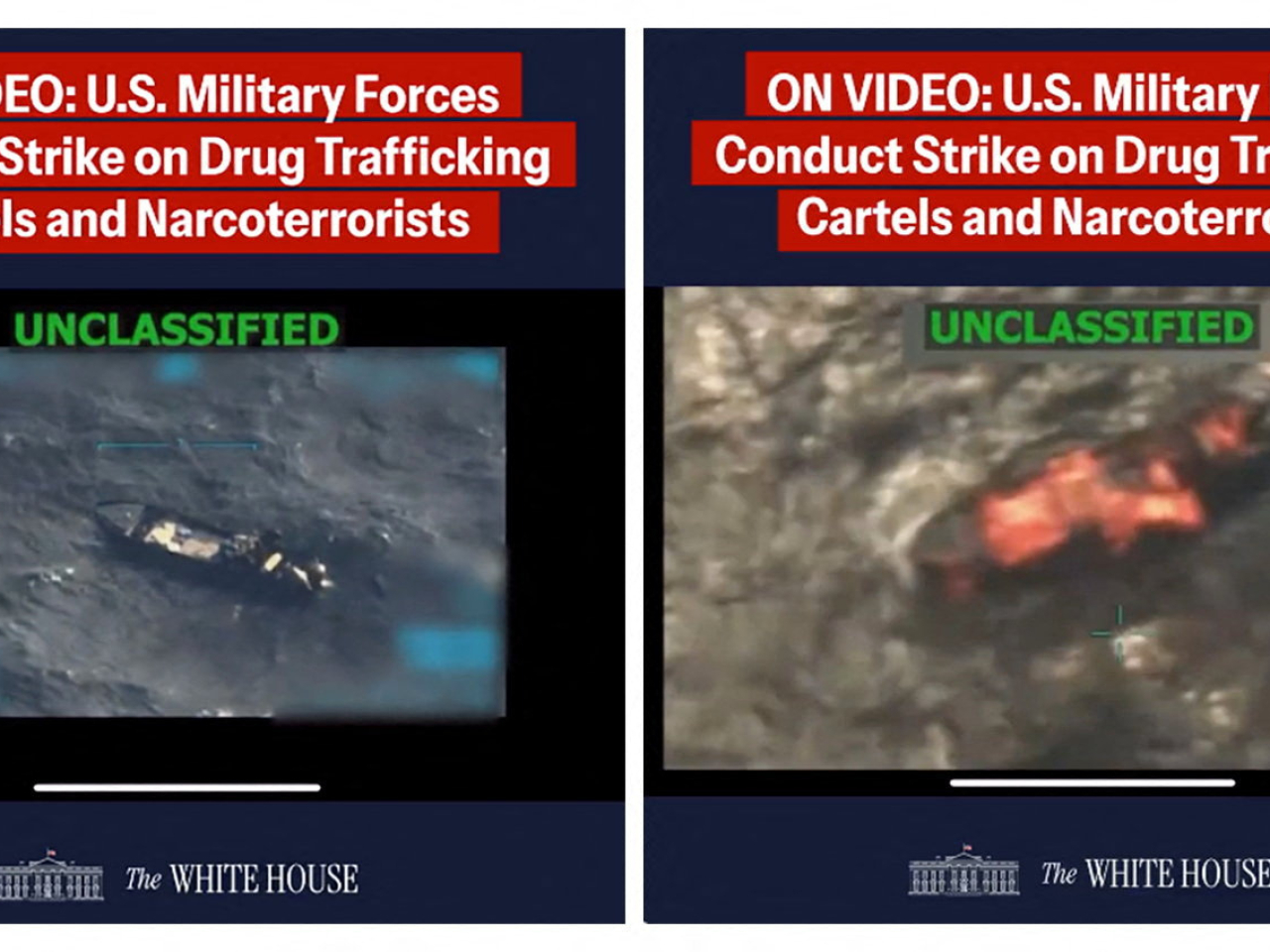US President Donald Trump said on Monday that the US military carried out a strike on an alleged Venezuelan drug cartel vessel heading to the United States, the second such strike carried out against a suspected drug boat in recent weeks.
He said three men were killed in the strike, adding that it occurred in international waters. Trump provided no evidence for his assertion that the boat was carrying drugs.
"This morning, on my Orders, U.S. Military Forces conducted a SECOND Kinetic Strike against positively identified, extraordinarily violent drug trafficking cartels and narcoterrorists in the SOUTHCOM area of responsibility," Trump said in a post on Truth Social.
"These extremely violent drug trafficking cartels POSE A THREAT to US National Security, Foreign Policy, and vital US Interests," Trump said.
US Southern Command (Southcom) is the military's combatant command which encompasses 31 countries through South and Central America and the Caribbean.
The post also included a nearly 30-second video, with markings of "Unclassified" on the top, which appeared to show a vessel in a body of water exploding and then on fire.
Later on Monday, Trump said that "we have proof, all you have to do is look at the cargo that was ... spattered all over the ocean."
The latest strike comes amid a large US military buildup in the southern Caribbean. Five US F-35 aircraft were seen landing in Puerto Rico on Saturday after the Trump administration ordered 10 of the stealth fighters to join the buildup.
There are also at least seven US warships in the region, along with one nuclear-powered submarine.
Trump, speaking with reporters on Monday, suggested operations could be carried out on land against suspected drug smugglers.
"When they come by land, we're going to be stopping them the same way we stopped the boats," Trump said. "But maybe by talking about it a little bit, it won't happen."
Earlier this month, US Defense Secretary Pete Hegseth told sailors and Marines on a warship off Puerto Rico that they were not deployed to the Caribbean for training but instead sent to the "front lines" of a critical counter-narcotics mission.
On Monday, Hegseth, in a post on X, suggested an expansive mission for the US military against drug traffickers: "We will track them, kill them, and dismantle their networks throughout our hemisphere — at the times and places of our choosing."
Hours before Trump's post, Venezuelan President Nicolas Maduro said that recent incidents between his country and the United States were an "aggression" by the US and that communications between the two governments had largely ended.
The Trump administration has provided scant information about the first strike on September 2, despite demands from US lawmakers that the government justify the action. It has alleged those onboard were members of Venezuelan gang Tren de Aragua and said 11 people were killed.
The Pentagon has not publicly said what type of drugs that boat was carrying or how much, or even what type of weapons were used to carry out the strike.
US officials, speaking on condition of anonymity, have told Reuters that the boat hit on September 2 appeared to be turning around when it was hit, a fact that has raised questions among some legal experts about the legality of the strike.
Trump shared a video at the time of that first strike that appeared to show a speedboat exploding at sea. A Venezuelan official later suggested that the video was created with artificial intelligence.
The Venezuelan government, which says it has deployed tens of thousands of troops to fight drug trafficking and defend the country, has said none of the people killed in the first strike belonged to Tren de Aragua.
Maduro has repeatedly alleged the US is hoping to drive him from power.
Last month, the United States doubled its reward for information leading to the arrest of Maduro to US$50 million, accusing him of links to drug trafficking and criminal groups.
The decision to blow up a suspected drug vessel instead of seizing the vessel and apprehending its crew is highly unusual and evokes memories of the US fight against militant groups like al Qaeda. (Reuters)





